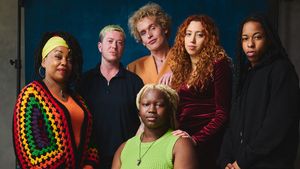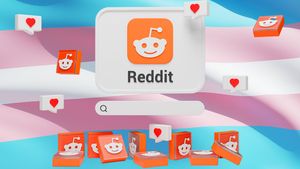Treatment GuideJust DiagnosedSex & DatingAfrican AmericanStigmaAsk the HIV DocPrEP En EspañolNewsVoicesPrint IssueVideoOut 100
CONTACTCAREER OPPORTUNITIESADVERTISE WITH USPRIVACY POLICYPRIVACY PREFERENCESTERMS OF USELEGAL NOTICE
© 2025 Pride Publishing Inc.
All Rights reserved
All Rights reserved
Scroll To Top
By continuing to use our site, you agree to our Privacy Policy and Terms of Use.
Tom, a 38-year-old New Yorker, could hardly believe what he was reading. Splashed across newspapers, websites like MSNBC.com, and online bulletin boards in January were shocking headlines like 'Unprotected Sex OK for Some With HIV,' trumpeting an announcement by the Swiss AIDS Commission, which after reviewing data from several studies had concluded that HIVers who are stable on their treatment regimens could safely have unprotected sex with seronegative partners. 'I could not have been happier when I read that,' says Tom, who is normally reluctant to become sexually involved with HIV-negative partners. 'I feel like an entire pool of potential mates may have been opened up for me.' He isn't alone. The publication of the Swiss declaration opened a virtual Pandora's box in the HIV community, with many HIVers like Tom saying they may now be more likely to have sexual relationships with seronegative partners, while others, because they believe they're not infectious, are questioning whether to continue serosorting, disclosing their status, or practicing safer sex. On the other side of the issue are HIVers who call the announcement 'dangerous' and 'immoral,' and who have denounced the commission's conclusions as well as the validity of the research they examined. And for those falling somewhere between these opposing positions, the Swiss announcement merely highlighted an ongoing sexual anxiety that many regularly grapple with: What can I do with my partners without infecting them? 'There's an enormous amount of confusion when it comes to sex,' says 53-year-old Daniel Carmin of Los Angeles. 'I've asked my friends, 'If we have undetectable levels of virus, what do we have to transmit?' And we just looked at each other, puzzled.' Anecdotal evidence would seem to support the notion that an undetectable viral load diminishes transmission risks, say some long-term HIVers and those who've tracked HIV's epidemiology. 'This is something we've seen here in San Francisco for a while,' notes 48-year-old Lee Jewell, who was diagnosed with HIV in 1986. 'I've had barrier-free sex with a couple of negative guys, including my partner at the time I tested positive, and they haven't been infected. I personally have not heard of others transmitting their virus to their uninfected partners through unprotected sex.' Though unscientific, the informal evidence is so persuasive that some physicians have privately told their patients that they believe them to be noninfectious. 'My HIV doctor once told someone I was dating that I would probably never transmit the virus to him,' says John Mitrushi, a 49-year-old from Pleasantville, N.J. 'He said, 'I would bet my life on it.' And that was four years ago.' But it's statements like that'and announcements like those from the Swiss AIDS Commission'that has American AIDS experts like Monique Howard, executive director of the New Jersey Women and AIDS Network, fearing that more and more HIVers will now be more willing to engage in risky sex. 'I think a lot of people may say 'I'm undetectable and take my meds; therefore, I don't have to use condoms,' ' she says. 'I am very fearful people will use that research as their justification to throw caution to the wind.' Thomas Hardy, a 47-year-old Philadelphia attorney, says he expects some HIV-positive gay men to use the study to justify not disclosing their serostatus, particularly to casual or anonymous sex partners. 'There are guys who prefer not to disclose because there's still a lot of stigma, prejudice, and discrimination out there,' says Hardy, who believes HIVers like himself have an obligation to disclose their serostatus. 'They might wonder why they should take a chance on being rejected by disclosing something that doesn't pose a risk to anyone anyway. If you're looking for an excuse not to disclose, here it is.' That same vein of logic could easily be used to undermine a community-level intervention that AIDS experts say has played a vital role in reducing HIV transmission rates, particularly among gay and bisexual men''serosorting,' the practice of choosing sex partners of the same HIV serostatus so that there's no risk of new infection through unprotected sex. But backed by the Swiss agency's conclusion that they might no longer be infectious, many HIVers who practiced serosorting could question why they should continue to limit their sex partners. That's exactly what's happening with men like New Yorker Tom, who'd recently avoided dating an HIV-negative man he met online because of transmission fears. But now, believing himself to be noninfectious, he's had a marked change of heart: 'I'm definitely going to meet him now.' Hardy, however, isn't convinced that he should abandon tried-and-true prevention methods, including serosorting and using condoms, especially given that U.S. AIDS organizations quickly denounced the Swiss statement and reiterated their calls for HIVers to continue to practice protected sex. 'You don't change behavior based on just one study,' he says. Sherri Lewis agrees. During her 23-year fight against HIV, the 54-year-old Lewis has heard far too many wondrous predictions that ultimately were proved wrong. 'Remember how people thought that when they achieved undetectable viral loads taking protease inhibitors they could stop taking their medications'or safely go on drug holidays? That didn't turn out to be true,' says Los Angeles resident Lewis, who as Sherri Beachfront hosts the weekly HIV-themed podcast Straight Girl in a Queer World. 'Who knows what they'll discover years from now that debunks this conclusion?' Mitrushi also worries that some HIVers will fail to note that the Swiss announcement came with some very important caveats. In order for infection risk to be eliminated, the HIV-positive partner must have no other sexually transmitted diseases'and must have maintained an undetectable viral load for at least six months. Additionally, the negative partner must also be free of sexually transmitted diseases. 'Who really knows for sure that their partners have no STDs?' he asks. 'How many of us know for sure that we don't?' Similarly, it's not possible to be certain that one's viral load is undetectable at the moment of sexual contact, warns John Newmeyer, Ph.D., an epidemiologist at San Francisco's Haight Ashbury Free Clinic. 'You can still have a viral spike from time to time,' he says. 'There's no way of knowing if your viral load test from three weeks ago is still relevant today.' There's also no way of knowing from a blood test whether you have detectable virus in your genital fluids. 'My HIV specialist says it's possible to have high viral loads in genital secretions at the same time you have undetectable virus in your blood,' warns Lewis, who believes she was infected with HIV through unprotected sex. 'If you're having sex without condoms, it's those fluids that pose the transmission risks.' And just because you may not be exposing your partner to HIV doesn't mean condomless sex is risk-free, adds Santa Clarita, Calif., HIVer Jayson Stonne: HIV-positive men and women could be putting themselves at risk for a host of other STDs or even superinfection from a different HIV strain. In light of the many unanswered questions raised by the Swiss commission's announcement and the many variables that affect HIV transmission risks, it would be dangerous to advocate unprotected sex, concludes Howard. 'We at the New Jersey Women and AIDS Network will continue to stress using a barrier during sex to prevent transmitting or acquiring HIV,' she says. 'It's far too early, and there's far more research that still needs to be done to do otherwise.'
From our Sponsors
Most Popular
Lexi Love comes out as HIV+ after Trump deletes federal resources
January 23 2025 11:23 AM
Grindr is reminding us why jockstraps are so sexy and iconic
May 02 2025 5:36 PM
BREAKING NEWS: Trump admin moves to end federal HIV prevention programs
March 18 2025 6:10 PM
Trump's orders prompt CDC to erase HIV resources
January 31 2025 5:29 PM
Celebrating Black History Month with our annual African American issue
February 01 2025 3:28 PM
Tyler TerMeer vows to continue to fight for health care for all
January 28 2025 3:00 PM
Discover the power of Wellness in your life
March 26 2025 12:41 PM
Plus: Featured Video
Latest Stories
Dancer. Healer. Survivor. DéShaun Armbrister is all of the above
July 02 2025 8:23 PM
Two right-wing Supreme Court justices signal they may uphold access to PrEP and more
April 21 2025 4:10 PM
Broadway's best raise over $1 million for LGBTQ+ and HIV causes
April 03 2025 7:15 PM
Plus nominated for 2025 GLAAD Media Award
January 22 2025 12:42 PM
'RuPaul's Drag Race' star Trinity K Bonet quietly comes out trans
December 15 2024 6:27 PM
AIDS Memorial Quilt displayed at White House for the first time
December 02 2024 1:21 PM
BREAKING: Supreme Court rules to save free access to preventive care, including PrEP
June 27 2025 10:32 AM
1985: the year the AIDS crisis finally broke through the silence
June 26 2025 11:24 AM
Trump admin guts $258 million in funding for HIV vaccine research
June 03 2025 3:47 PM
500,000 Children at Risk: PEPFAR Funding Crisis
April 08 2025 3:51 PM
The Talk Season 5 premieres this spring with HIV guidance for the newly diagnosed
March 26 2025 1:00 PM
Jess King is here to help you live your happiest, healthiest life yet
March 24 2025 4:35 PM
A camp for HIV-positive kids is for sale. Here's why its founder is celebrating
January 02 2025 12:21 PM
VIDEO: A man living with HIV discusses his journey to fatherhood
June 10 2025 4:58 PM
HRC holds 'die-in' to protest Trump health care cuts
April 28 2025 2:11 PM
Season 4 of The Switch on resilience & radical self-love returns this spring
March 26 2025 12:20 PM
Gerald Garth is keeping people of color happy and healthy through trying times
March 11 2025 3:38 PM
This long-term HIV survivor says testosterone therapy helped save his life.
December 16 2024 8:00 PM
Ricky Martin delivers showstopping performance for 2024 World AIDS Day
December 05 2024 12:08 PM













































































